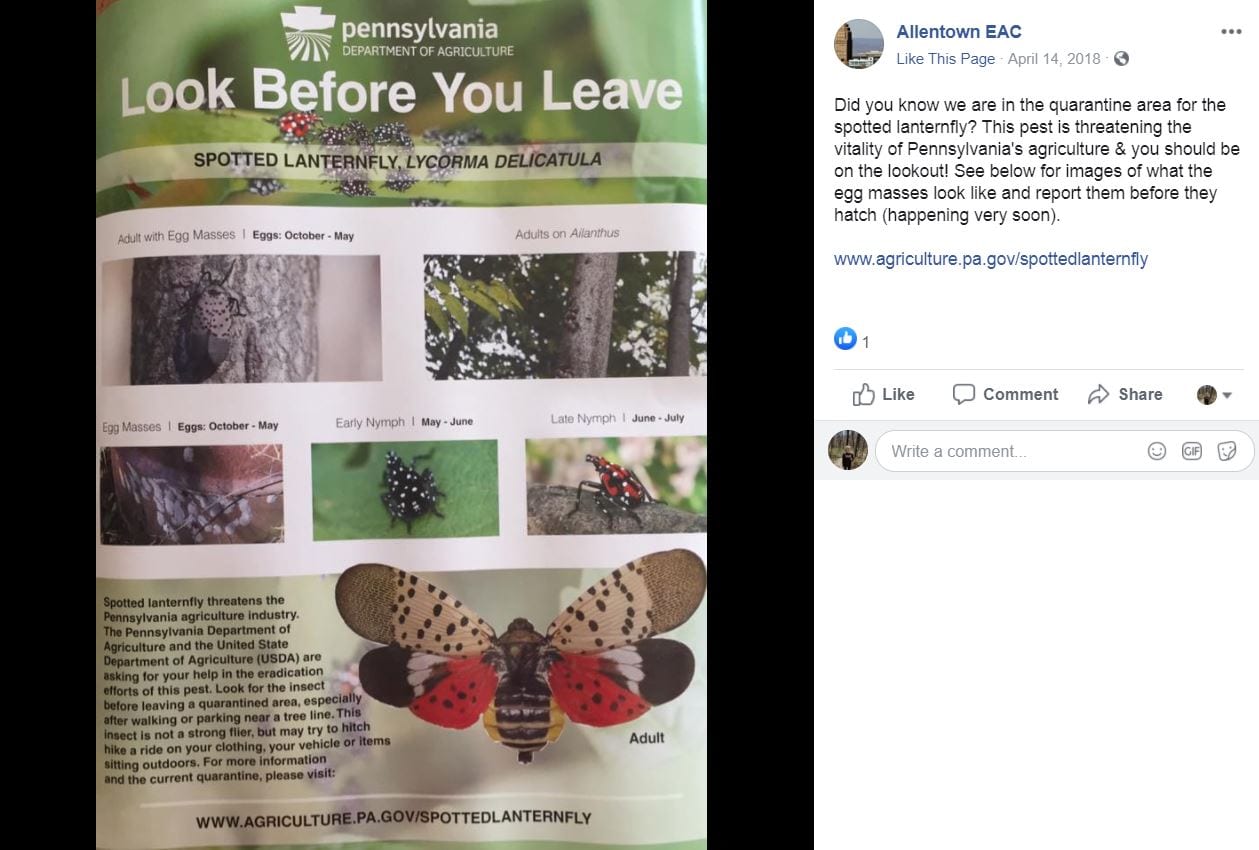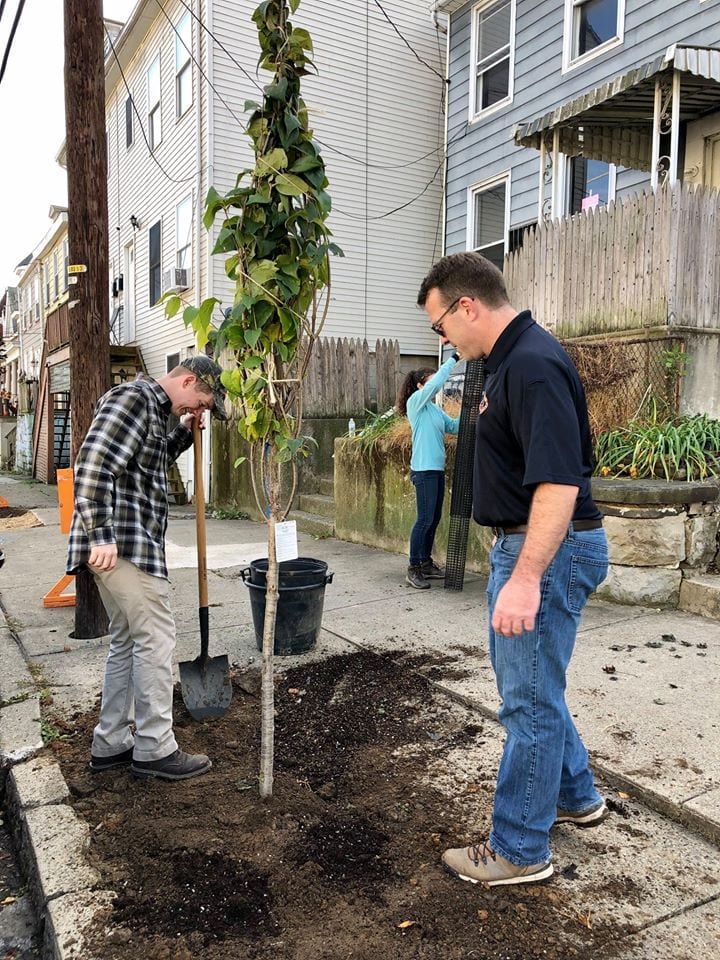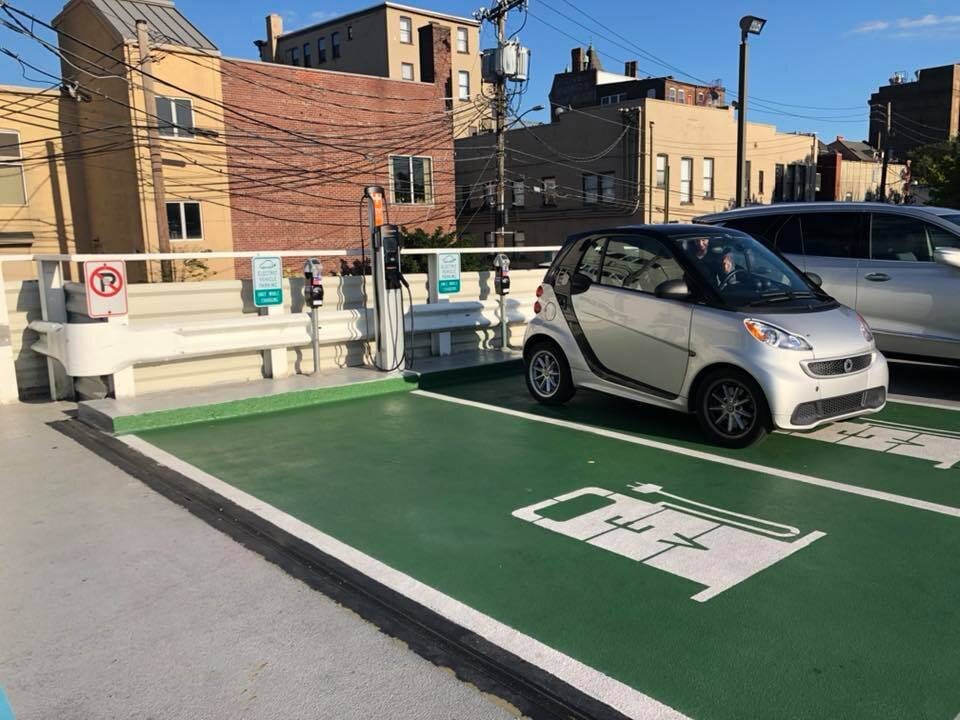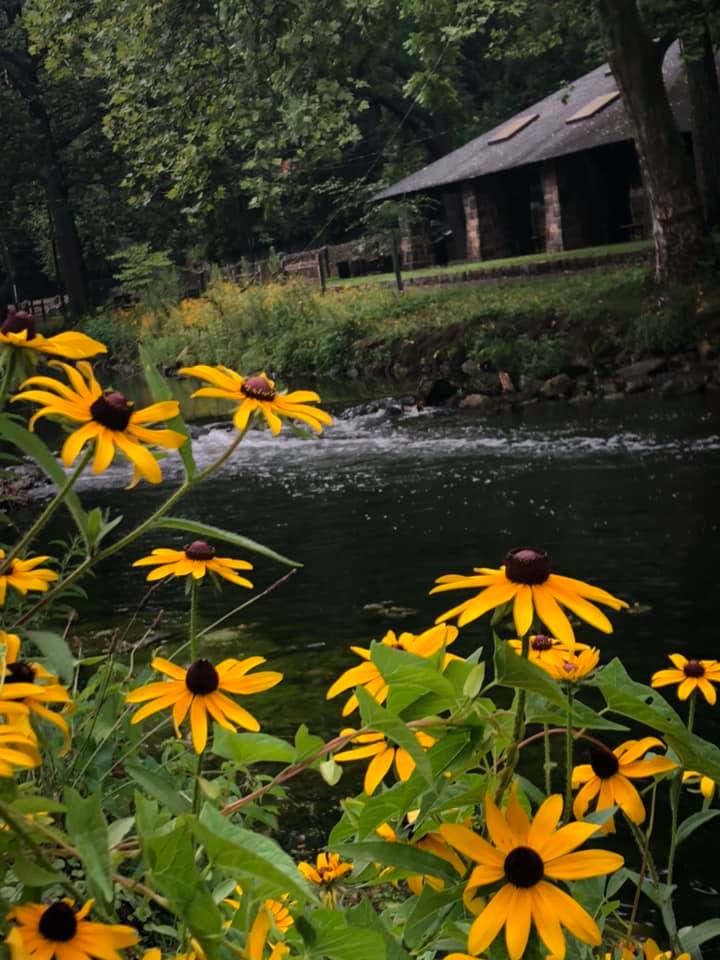A recent study found that there’s a “sweet spot” for effective action on climate change – initiatives targeting between 10,000 and 1,000,000 people, at the community, city, or regional level. This means that by focusing on implementing solutions in a local context we can find the most effective levers for catalyzing rapid action. Even before this in-depth study came out, members of our area Environmental Advisory Councils (EACs) probably would have been able to tell a similar story about the power of linking the global and the local through community-scale action. 18 municipalities in the Lehigh Valley have an EAC, which is a group created by the local governing body to provide guidance on issues related to the environment. EACs serve as liaisons between the public and the government, helping to ensure that residents’ environmental concerns are heard by local officials and that the public is made aware of ordinances and municipal programs related to the environment. I spoke with Tinku Khanwalkar, Chair of Allentown’s EAC, Lynn Rothman, Chair of Bethlehem’s EAC, and Ian Kindle, Chair of Easton’s EAC about the work that these groups do and how other interested residents can get involved.
As the name suggests, Environmental Advisory Councils make suggestions and advise municipal governments as they make decisions connected to the environment. Local governments have a lot more ability to affect the environment than many people would guess, as they control zoning and building codes, land use decisions, local parks and green space, and more. Bethlehem’s EAC suggests ordinances to City Council, including to require solar assessments/solar panels on large new or retrofitted buildings and to ban single use plastic bags. They also comment on proposed developments and the sale of public land. Allentown’s EAC has been looking into an incentive program for businesses to reduce their use of single-use plastics. They have also been looking at further encouraging micromobility, so that people can travel through the city more easily without cars and are planning to work with the City on a comprehensive review of the city’s zoning codes to “be able to provide input to make zoning better for a more inclusive, walkable, bikeable community” Tinku says. In Easton, the EAC helped rewrite the city’s tree list to include more native species better suited to the urban environment. They’re also currently working on a native plant ordinance that would provide more information on the value of native species in backyard habitats and local natural spaces.
Aside from helping with specific ordinances, EACs also work with city departments and councils regularly to share their knowledge of environmental issues and stay in the loop on programs and initiatives the city is considering. “Having that group of dedicated individuals who have an environmental perspective fully in mind, having a group codified through an ordinance to look at environmental issues – it’s really an essential thing,” says Ian.
To provide effective guidance to local officials and to work on a variety of projects benefiting the local environment, the EACs also work with members of the general public. In Bethlehem, this includes work with community gardens and education regarding single use plastics and recycling. Allentown EAC is looking into such community programs as well. Easton’s EAC took on the role of conducting a walking survey in downtown Easton regarding pedestrian issues. The resulting public input later got integrated in city planning projects restructuring elements of the downtown area. EAC members may also speak at community events, host volunteer opportunities like stream cleanups or garden maintenance, or share information with the public via social media. They’re a valuable source of information and entry point for members of the public who have interest in a local environmental issue and want to get involved.
EAC meetings are open to the public and welcome questions and new ideas for projects. Lynn emphasizes that people do not have to be official members of the EAC to get involved. “Someone came to us wanting to know how we could reduce plastic bag use. She agreed to head a subcommittee that drafted a plastic bag ban ordinance, which the EAC then proposed to City Council.” she says. If there’s a topic you’re passionate about, EACs are one avenue through which you can make change in your community. Similarly in Allentown, a citizen who is not currently a member of the EAC has been put in charge of providing the EAC’s input on a review of the city’s zoning policies, and may end up becoming an appointed EAC member after getting involved in an unofficial capacity. Consider joining your own EAC or participating on a subcommittee for a project you’re passionate about! “All members bring different experience and knowledge to the council,” Lynn says. “There’s a camaraderie because we’re all working to protect the environment and care so deeply about Bethlehem.” Now is a great time to get involved – meetings are virtual so you can attend from home. All three EAC chairs emphasized the importance of broad community engagement to their work – both helping the public stay informed and finding individuals to commit to volunteering on the council. “A challenge and priority for me is diverse representation in the group – not only in terms of race or socioeconomic status, but also where in the city they’re coming from,” says Ian. “An environmental background in some form can be helpful, but it’s much more important to have a diversity of experience and knowledge from different communities and backgrounds.”

EACs help to inform the public about relevant environmental issues – for example the Allentown EAC shared this information about spotted lanternflies on their Facebook page.
The importance of an EAC’s joint advisory and education/outreach roles is demonstrated in current efforts to create city-wide climate action plans (CAPs) in all three cities. EACs are instrumental in this effort because they can provide guidance to the city government throughout the creation of the plan, as officials are typically not environmental or climate experts, and they can help to involve the public in the planning process and publicize the plan after its creation. Nurture Nature Center is a subcontractor for the public engagement portion of Bethlehem’s CAP, and the EAC has been central to communicating information in both directions – from the city to the public and vice versa.

The Easton EAC helps spread the word about initiatives like city tree planting. Photo credit: City of Easton
Several EAC members also serve on the stakeholder working group that is drafting key sections of the report. Easton and Allentown will both be part of the 2020-2021 cohort of PA Department of Environmental Protection’s Local Climate Action Program, which pairs local governments with nearby college students to conduct a greenhouse gas inventory and develop a climate action plan. Nurture Nature Center is helping to facilitate Easton’s involvement. Students and municipalities are guided by ICLEI, a global network that supports local governments in becoming more sustainable. EACs can expand the city government’s ability to hear from the public during community engagement efforts and to share with the public the completed plan and strategies as they are implemented. And, Lynn mentions, initiatives the EAC is already working on can be channeled into the climate action plan, coordinating multiple projects and creating a more comprehensive vision for the city from a sustainability perspective.
Many people aren’t aware of, or discount the importance of, local governments’ actions concerning the environment, especially where global environmental issues like climate change or plastic pollution are concerned. However, they do have control over policy areas that can make a big difference in the environmental impacts of our daily lives. Getting involved in decision-making on a local level, as EACs make possible, is a great way to break down big issues to a manageable size, meet with others who share your concern for your community, and find a meaningful way to make a difference in your corner of the world.
If you or someone you know is doing great work in the Lehigh Valley on a project that supports community-wide sustainability and would like to be considered for inclusion in a future Spotlight on Our Community piece, please email Lauren at lfosbenner@nurturenaturecenter.org.


